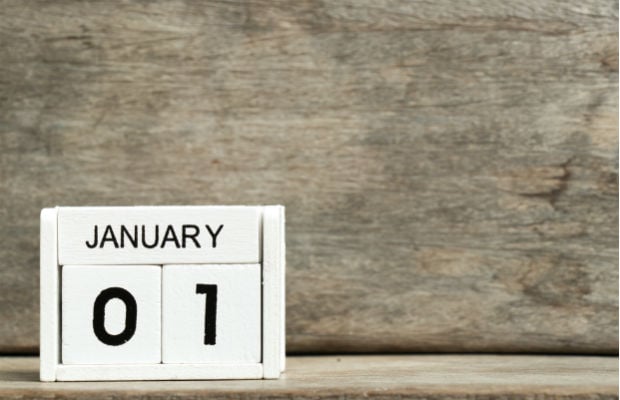Scroll to see replies
What type of cell though? From my understanding, diploid means total number of chromosomes so a cell with its total number of chromosomes.
The gamete mother cell is diploid. What are you unclear about here?
I don't understand how though because gametes that arise after meiosis cell division have 23 chromosomes ?
That's because they are pulled apart to make gametes.
The chromosomes replicate, they are pulled apart to make diploid cells still. Then the next set of cells made are haploid as no replication occurs.
The chromosomes replicate, they are pulled apart to make diploid cells still. Then the next set of cells made are haploid as no replication occurs.
oh wait is the cell that is dividing by meiosis a zygote ? when the gametes (ovum and sperm cell) join ?
A fertilised egg is a zygote. The cell to begin meiosis is a gamete mother cell.
but gametes have 23 chromosomes ? and the starting cell has 46 chromosomes. I feel so stupid because this is GCSE stuff.
The chromosomes replicate but don't separate at the centromere, so still joined in the classic shape. These line up on the metaphase plate and are pulled apart by spindle fibres to the poles. Each pole becomes a new cell. Each new cell is diploid because there are 23 chromosomes that are joined together, also counting as 46. This process repeats but this time the Chromatids are pulled apart to the poles to make 2 new haploid cells. 4 new cells in total from one gamete mother cell.
But in the starting cell, doesn't one chromosome come from the mother and the other comes from the father ?
Are you aware of what a zygote is? Because it has nothing to do with meiosis.
Zygote is a fertilized egg/ovum cell? Yea I just realised they divide by mitosis. So meiosis is the division of sex cells or gametes such as the sperm cell and ovum/egg cell ? what exactly is the diploid number of the starting cell?
Yes. But as the 96 are still joined at the centromere you can call it a single chromosome untilnit separates.
Where is this mother and father chromosome thing coming from in meiosis?
Quick Reply
Related discussions
- biology question
- Meiosis
- do i need to know mitosis for gcse aqa higher combined biology paper 2?
- gcse biology edexcel
- GCSE Biology
- Biology help
- Biology HIGHER TIER Paper 2 AQA unofficial mark scheme
- GCSE Biology
- Chromosomes a level biology
- OCR A- Level Biology 2023
- Meiosis help alevel
- aqa a level biology help
- A question about DNA electrophoresis
- Biology OCR A six markers - a level
- biology
- meiosis - possible chromosome combinations following meiosis
- biology as 2022 paper 1 ocr
- biology meiosis
- AQA AS biology 2022
- Edexcel IGCSE Biology | PAPER 2
Latest
Last reply 1 minute ago
Vodafone Cyber Security Degree Apprenticeship 2024Last reply 1 minute ago
Economics and Economic History 2024 ThreadLast reply 1 minute ago
Can someone help me with marking? GCSE AQA English LiteratureLast reply 1 minute ago
Government Social Research - Research Officer Scheme 2024Last reply 5 minutes ago
Official: Queen's University Belfast A100 2024 Entry ApplicantsLast reply 7 minutes ago
Should I send TMUA to LSE? (Maths, Stats and Business)Last reply 8 minutes ago
year 13 gyg journal : trying not to become an academic victim 🤡📖Last reply 9 minutes ago
Official London School of Economics and Political Science 2024 Applicant ThreadLast reply 11 minutes ago
Natwest apprenticeships 2024Last reply 13 minutes ago
Official University of Bath Offer Holders Thread for 2024 entryLast reply 13 minutes ago
Edexcel A-level French Paper 3, IRP/Speaking (9FR0 03) - 2024 [Exam Chat]Last reply 16 minutes ago
November 2023 Illegal Migration Intake Unit - Intake Response Team - Immigration OffiTrending
Last reply 5 days ago
SNAB biology- Access to end-of-topic tests/summaries 2024Last reply 5 days ago
a level biology mitosis questionLast reply 2 weeks ago
Biology surface area to volume rationLast reply 2 weeks ago
aqa biology aslevel calculation question FVCPosted 3 weeks ago
SNAB biology 2024 scientific articleLast reply 3 weeks ago
Resources for edexcel a (snab) a level biology?Last reply 3 weeks ago
GCSE Biology Study Group 2023-2024Last reply 3 weeks ago
Biology question water potentialLast reply 1 month ago
Aqa biology a level paper 3 2023Last reply 2 months ago
AQA A Level Biology Paper 1 2018Last reply 2 months ago
A-level Biology Study Group 2023-2024Last reply 3 months ago
how do you do this please explain stepsLast reply 5 months ago
biology math question ratios alevel aqaLast reply 5 months ago
biology aqa alevel proteins question past paperTrending
Last reply 5 days ago
SNAB biology- Access to end-of-topic tests/summaries 2024Last reply 5 days ago
a level biology mitosis questionLast reply 2 weeks ago
Biology surface area to volume rationLast reply 2 weeks ago
aqa biology aslevel calculation question FVCPosted 3 weeks ago
SNAB biology 2024 scientific articleLast reply 3 weeks ago
Resources for edexcel a (snab) a level biology?Last reply 3 weeks ago
GCSE Biology Study Group 2023-2024Last reply 3 weeks ago
Biology question water potentialLast reply 1 month ago
Aqa biology a level paper 3 2023Last reply 2 months ago
AQA A Level Biology Paper 1 2018Last reply 2 months ago
A-level Biology Study Group 2023-2024Last reply 3 months ago
how do you do this please explain stepsLast reply 5 months ago
biology math question ratios alevel aqaLast reply 5 months ago
biology aqa alevel proteins question past paper



